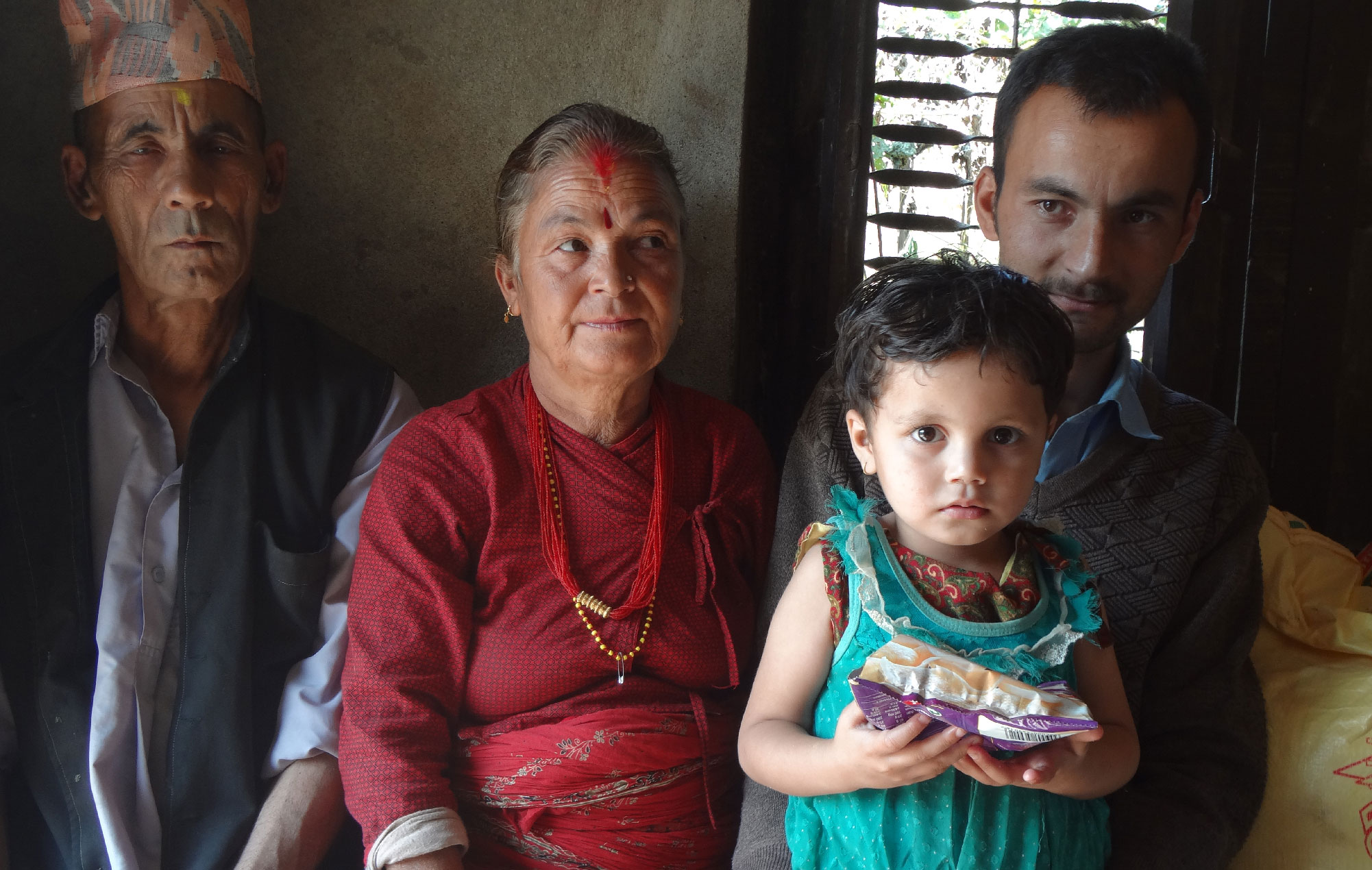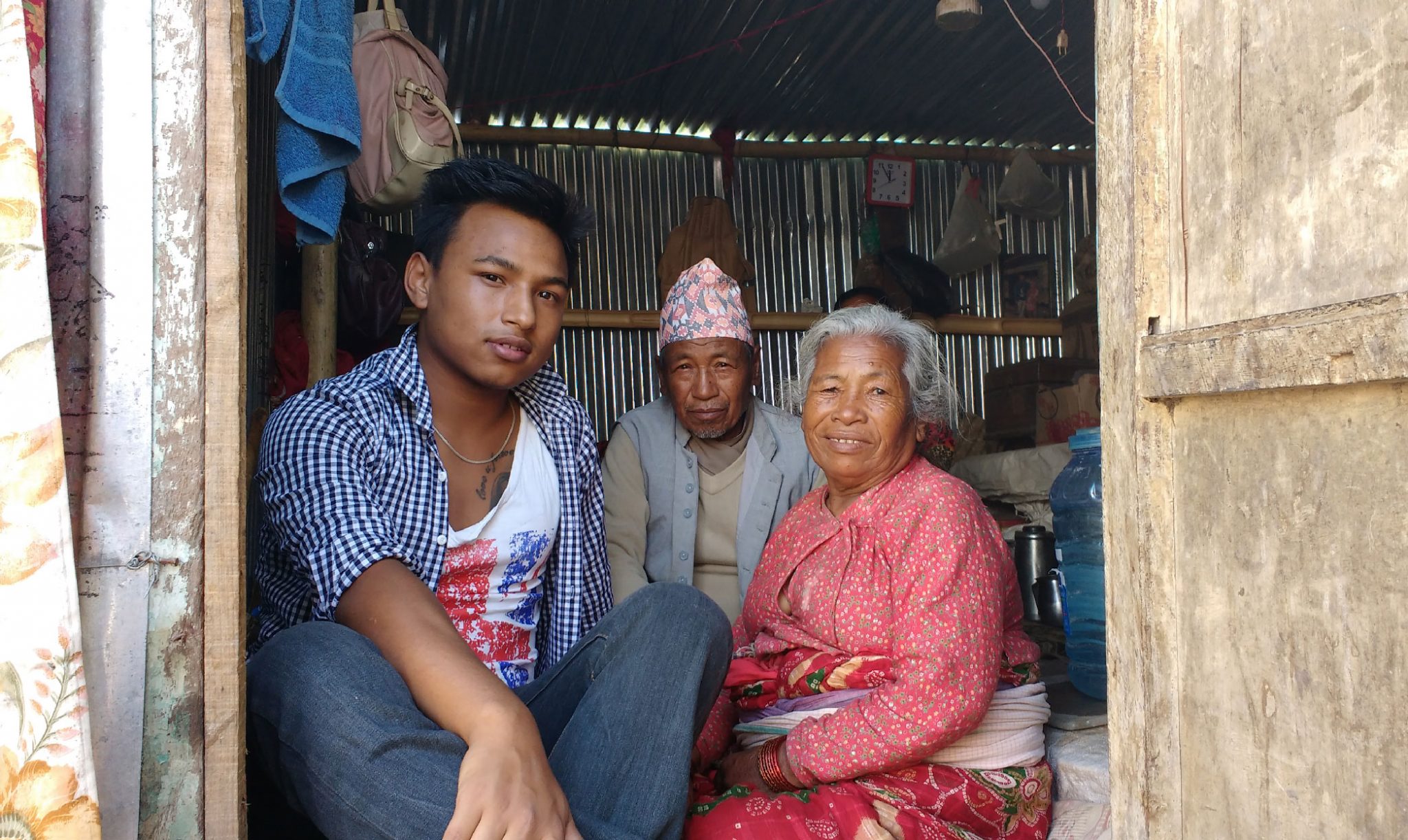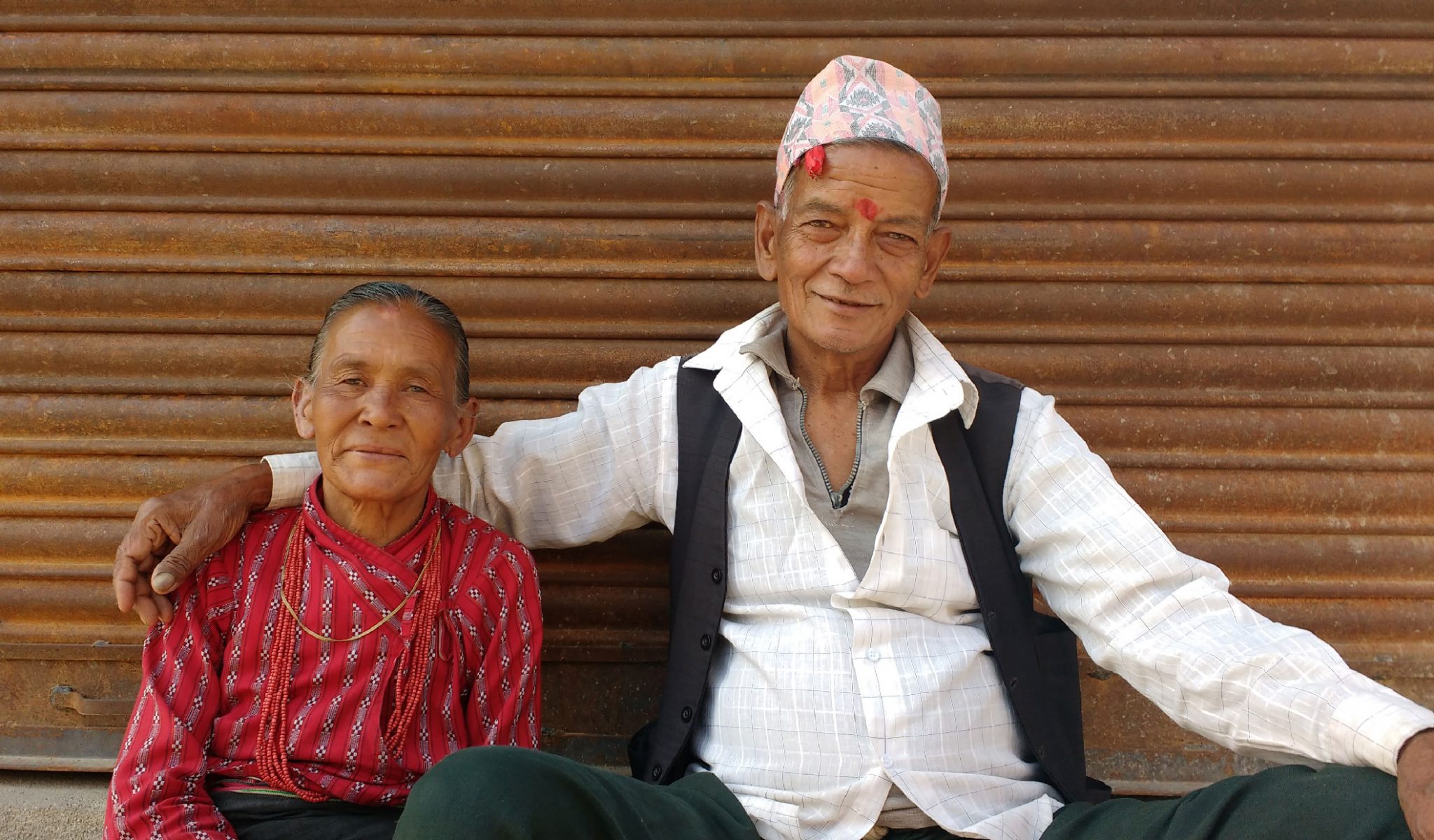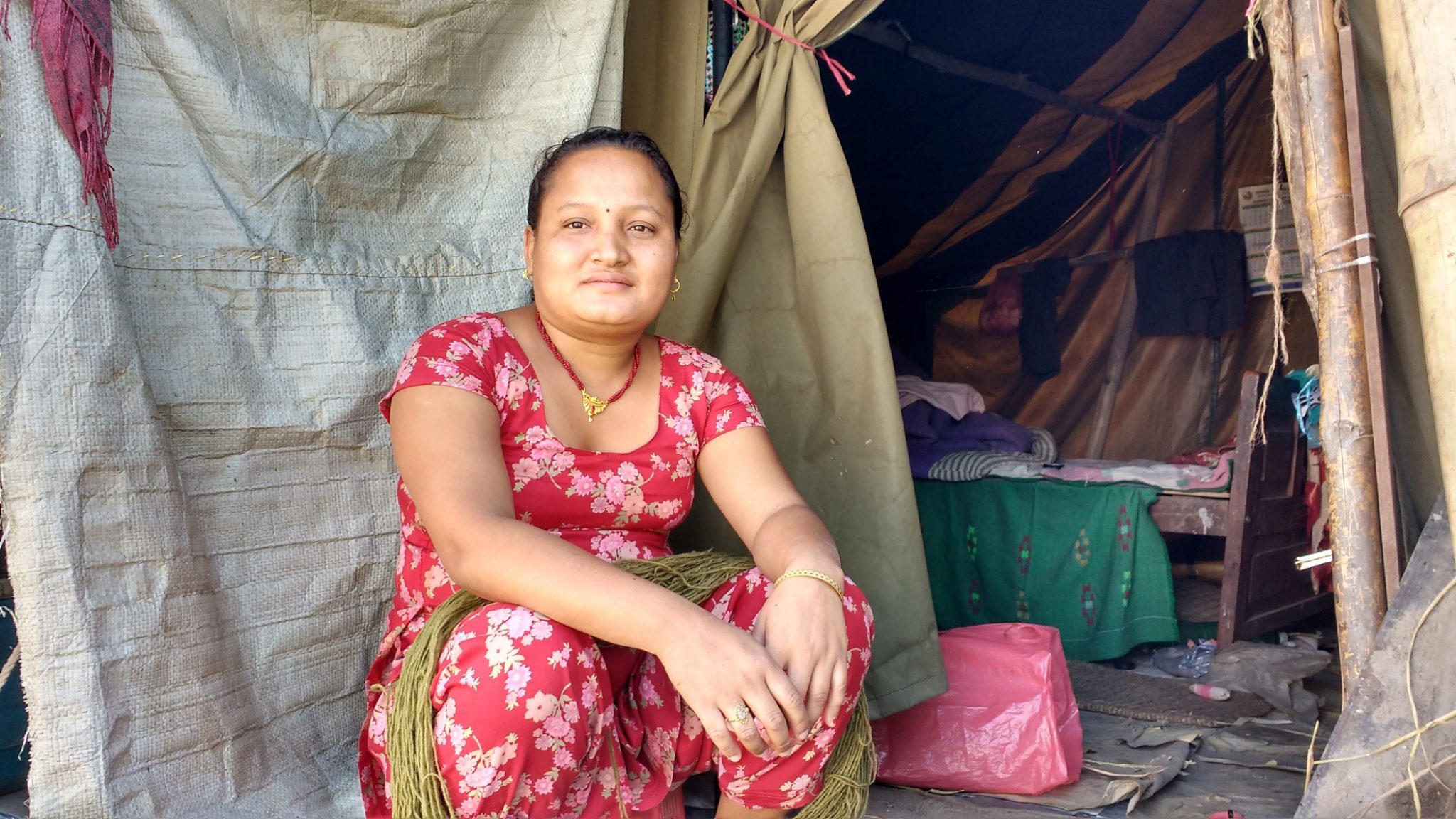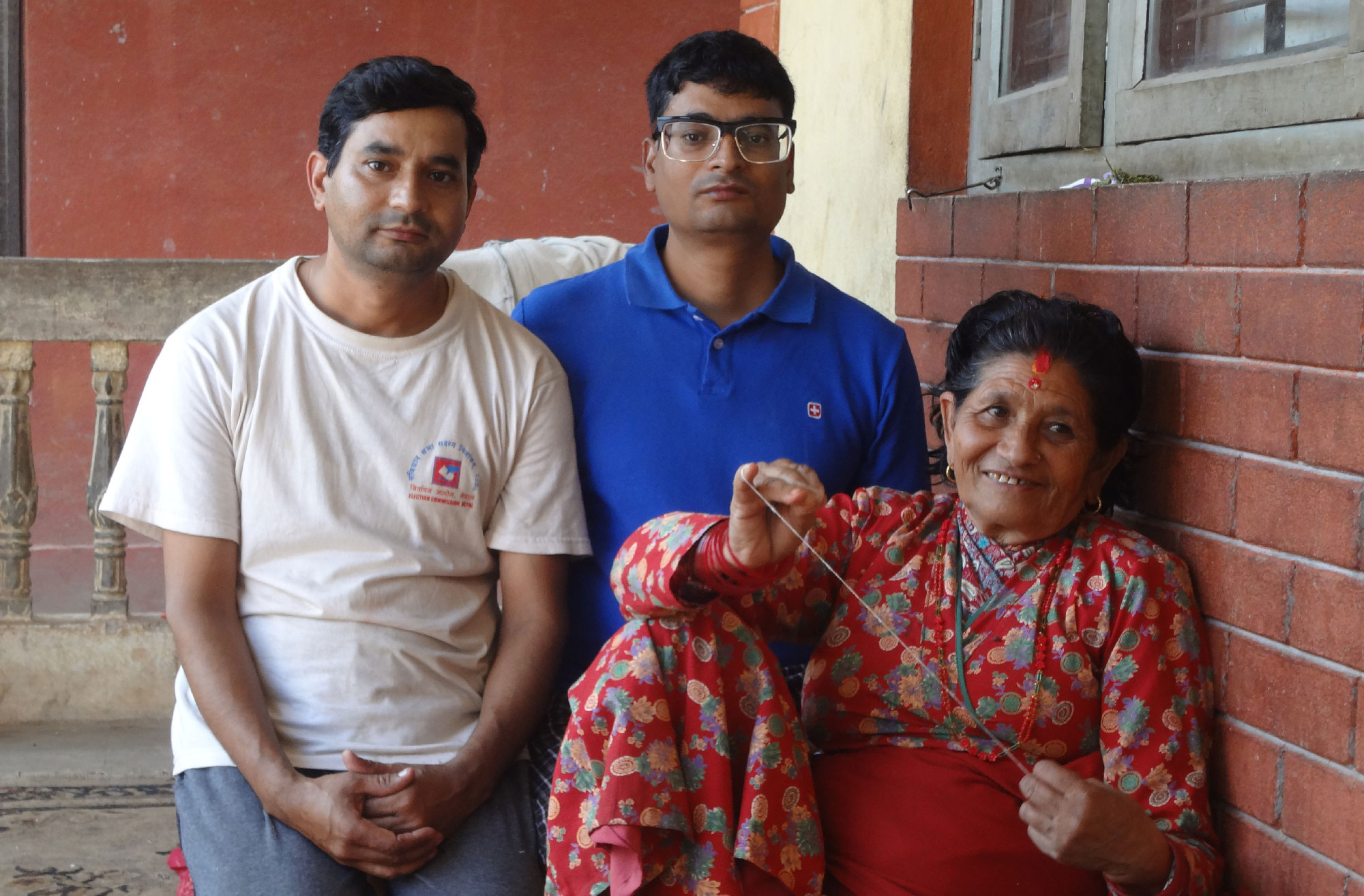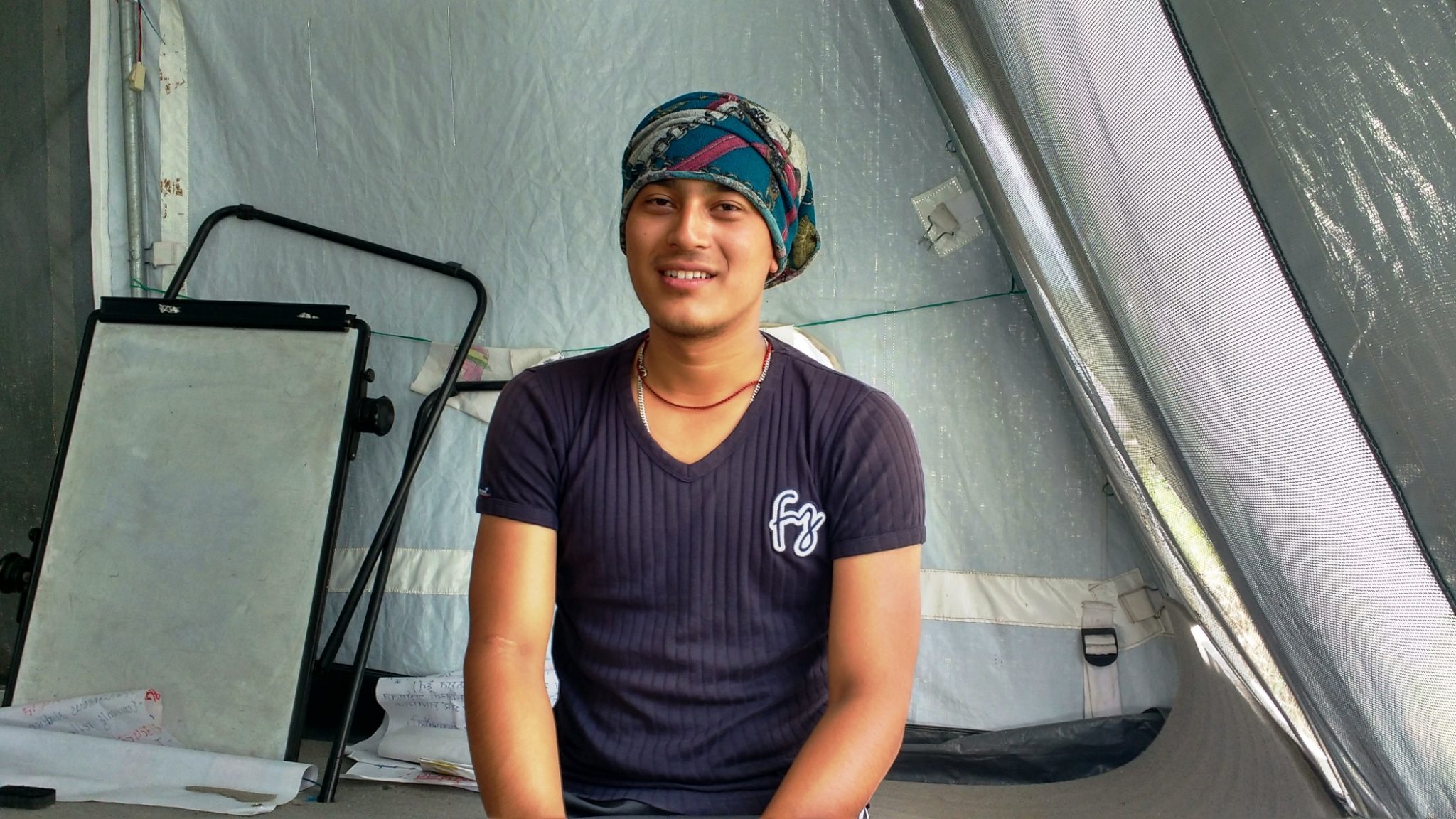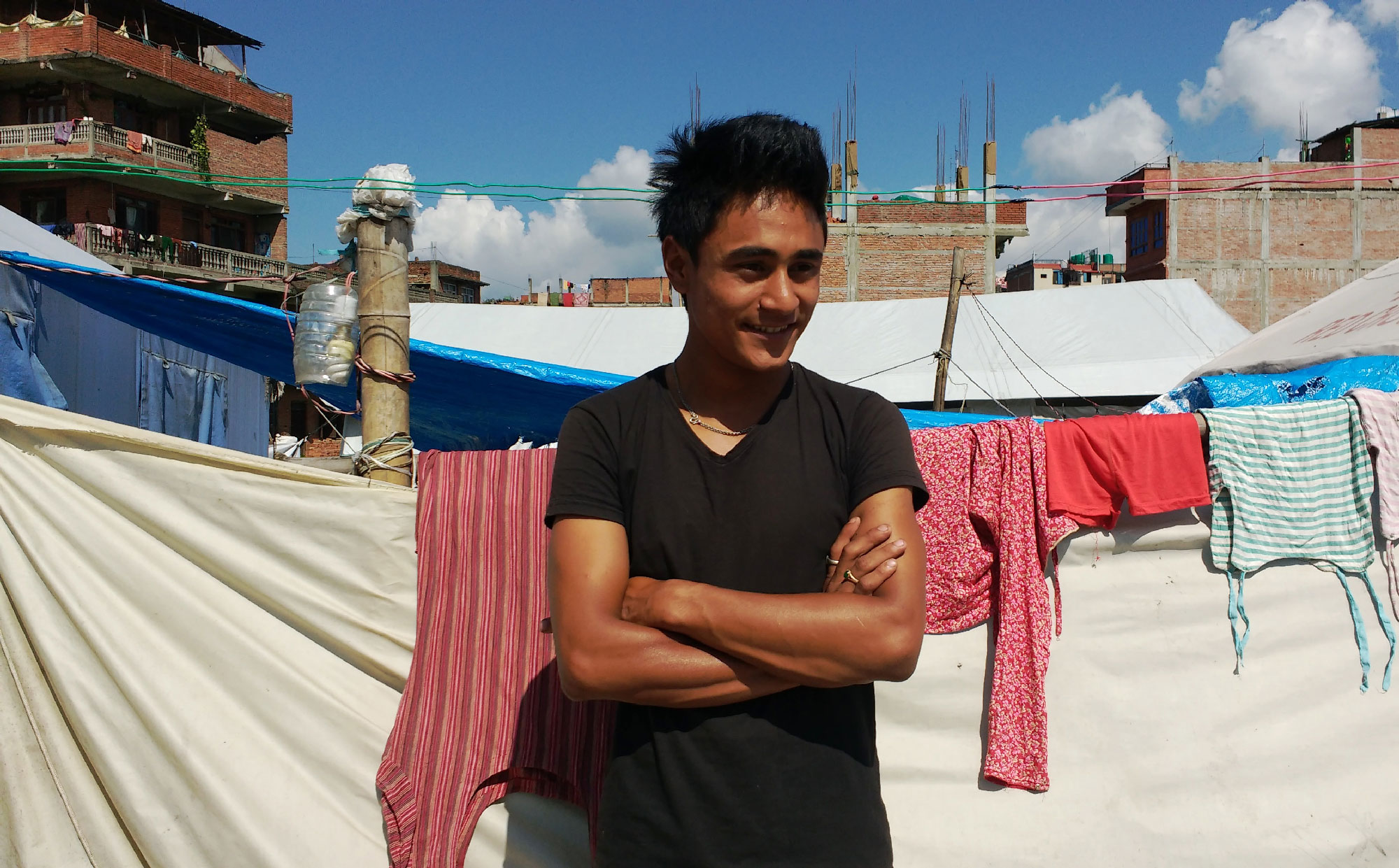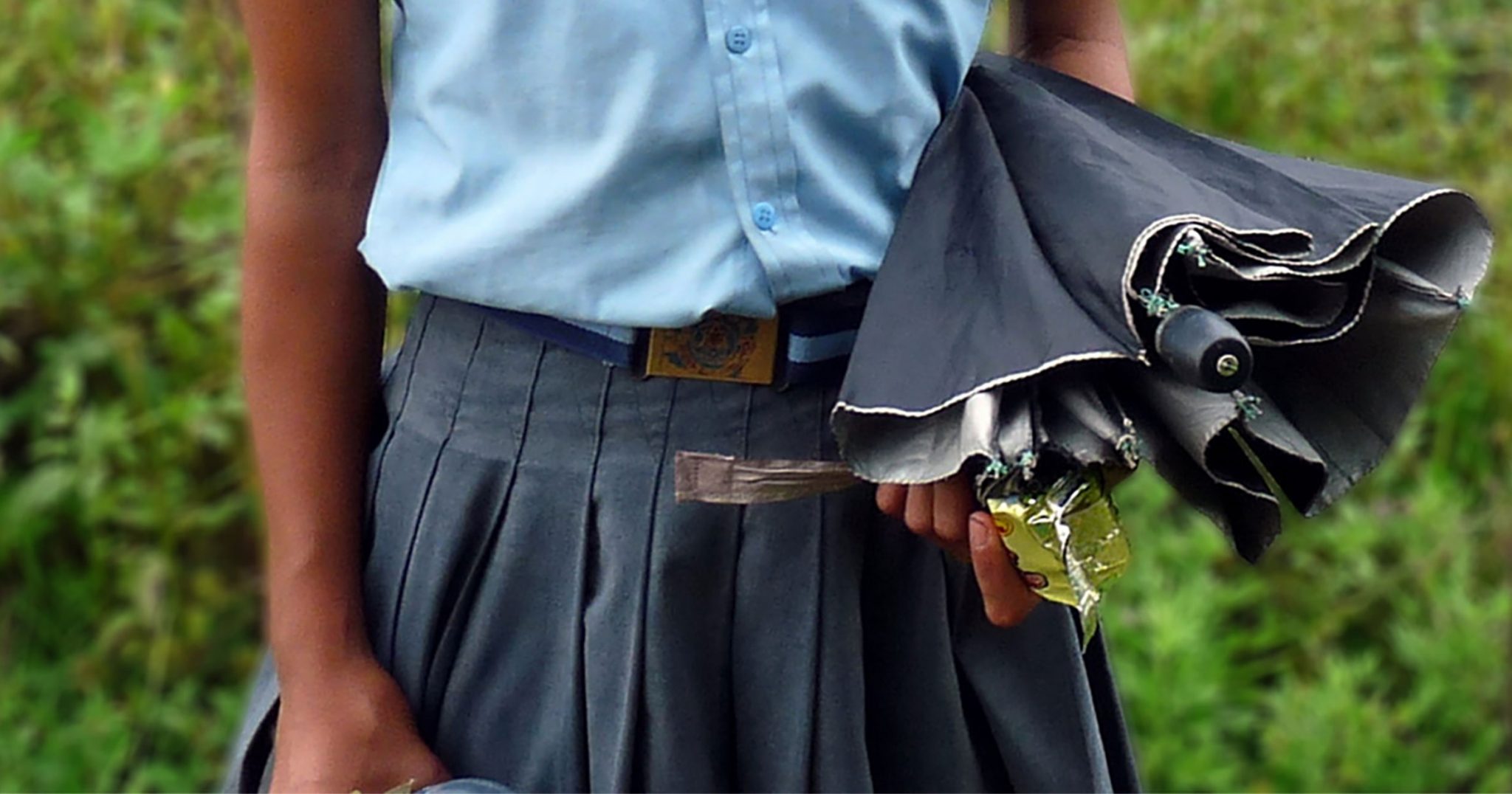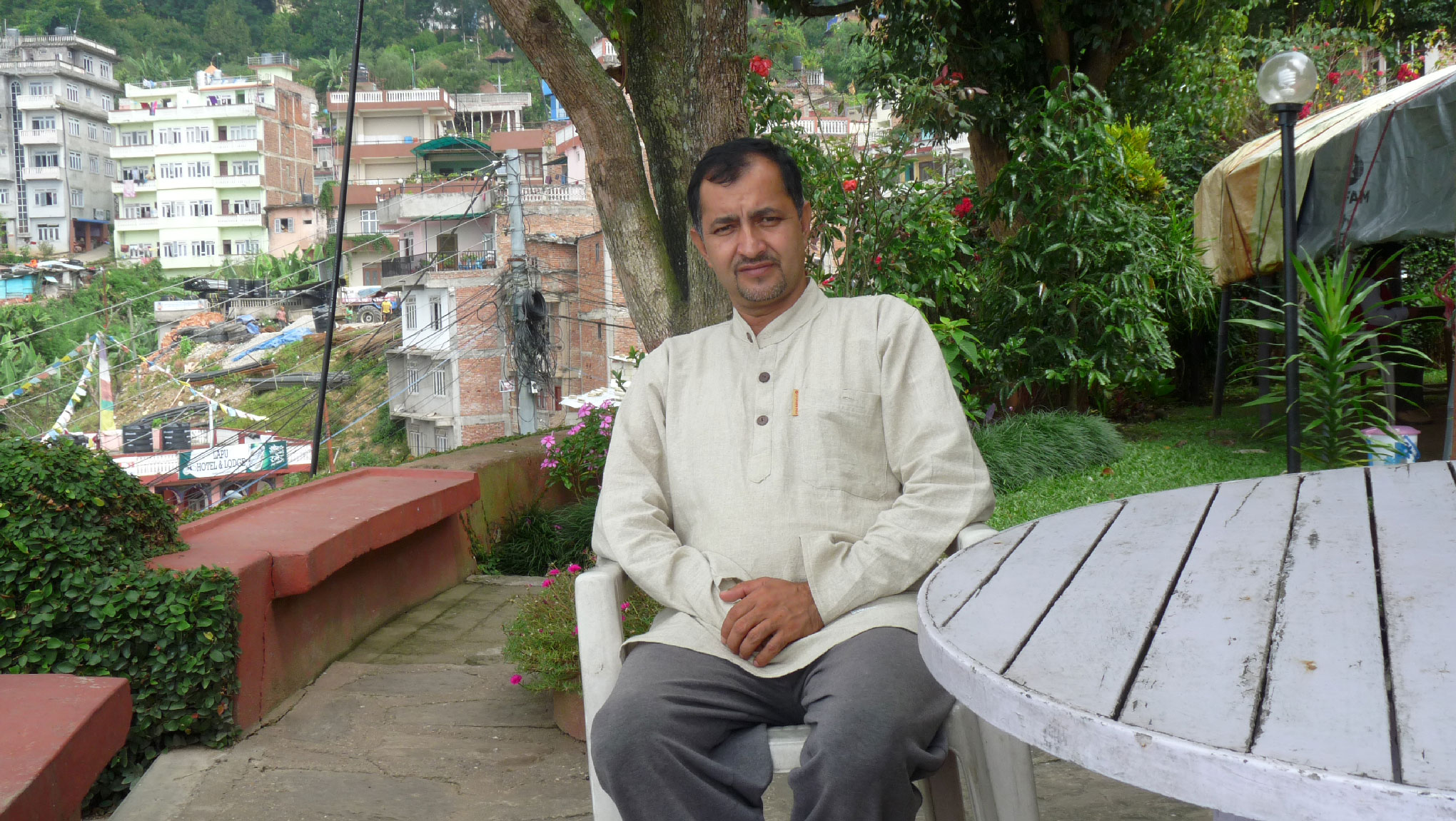‘He had seen Anju two minutes before. Two minutes after, she was gone’
“Anju was my daughter-in-law. She had just come back from the river, after washing clothes. She ran in to save her daughter, Anisha, who was eating in the kitchen. Anisha was saved, but Anju got stuck under the rubble.
“It took us more than an hour-and-a-half to locate where she was buried. She was under the rubble of two houses. There were continuous aftershocks at that time, which terrified us. Even our goats betrayed us that day. When we were looking for her, we heard a sound. We thought it was Anju, we dug out the rubble. But it was the goats. We saved them, but we lost Anju.
“I do not know if Anisha understands her mother is gone. She keeps asking for her. When she gets angry, she lies on the ground, asking for her mother. She cries covering her face. She wants her mother. We have not let her see the picture of Anju.
“My son Suresh has not been the same. He cried a lot. He was like a madman. It took a long time for the villagers to make him understand death is an inseparable part of life. Everyone will die once they are on earth. The only question is whether it is sooner or later. He had seen Anju two minutes before. Two minutes after, she was gone. He has not been able to forget that.
“My husband Damodar performed the funeral rituals. We received NPR 140,000 [about £880] from the government. Suresh has kept the money in a cooperative bank account in Anisha’s name. Six months have passed, but none of us are able to forget.”
Photo: Mandira Dulal

